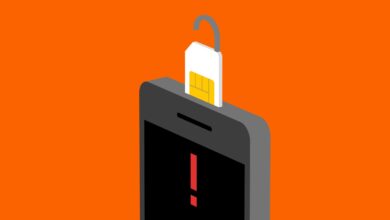How Late Can You Pay Car Insurance: Avoid Penalties!
Most car insurance policies have a grace period of 7 to 30 days for late payment. Missing this window may result in policy cancellation.
Ensuring timely car insurance payments is essential to maintain coverage and avoid penalties. Insurance companies often offer a grace period, which can vary significantly depending on the provider and your policy terms. It’s critical to understand your specific grace period to prevent a lapse in coverage, which could lead to legal issues or difficulty obtaining a new policy.
Keeping your car insurance active not only complies with legal requirements but also provides financial protection in case of accidents or theft. To stay on top of payments, consider setting reminders or enrolling in automatic payments when available. Remember that consistently paying your car insurance on time can also positively impact your credit score and potentially qualify you for discounts on future premiums.
Recognize Your Payment Deadline
Recognizing your insurance payment deadline is crucial to maintain continuous coverage. Your car insurance policy will clearly state the due date for your premium payments. Ensuring you are aware of this date is fundamental to avoid any lapses in your coverage. Failing to meet this deadline could have serious implications.
Missing your payment date can result in penalties, ranging from late fees to an increase in your future premiums. In the worst-case scenario, your policy could be canceled, leaving you uninsured and exposed to financial risks in the event of an accident. It is also likely to cause a gap in your insurance history, which could complicate the process of obtaining a new policy. To prevent these outcomes, it is advisable to set reminders or enroll in automatic payment plans if available.
Insurance Grace Period Details
A grace period is a set timeframe following a missed payment during which a policyholder can settle their car insurance premium without facing cancellation. Though grace periods offer a cushion, relying on this leniency is risky and can lead to unintended consequences, such as lapses in coverage.
Typically, grace periods can range anywhere from a single day to 30 days, but these limits are at the discretion of the insurance provider. The length of a grace period is influenced by the policy terms and the regulations that govern insurance practices within the state.
| State | Insurer A | Insurer B |
|---|---|---|
| California | 10 days | 30 days |
| Texas | 5 days | 10 days |
| New York | 7 days | Grace periods not required |
Differences by state regulations and individual insurer’s policies make it imperative for policyholders to be well-informed about their specific grace period terms. Keeping in good standing with your car insurance is paramount to ensure continuous coverage and prevent financial strain or legal issues arising from an uninsured period.
Consequences Of Late Payment
Late payments on car insurance might lead to several unwanted consequences. Insurance providers often charge late fees which add to the overall cost. These fees vary with carriers but are an unnecessary expense that can be avoided with timely payments. Furthermore, penalties for late payments can be more severe, such as an increase in premium rates, making the policy more expensive in the long run.
Not only do late payments affect your wallet, but they could also harm your credit score. Some insurers report late payments to credit bureaus, which may lead to a decrease in your credit rating. A lower credit score can have a widespread impact, potentially leading to higher interest rates on loans and credit cards.
The most significant risk of delaying your payment is facing a potential policy cancellation. If the payment is not made within the grace period provided by the insurer, your policy may be canceled. This means you would be driving uninsured, which is illegal in most places and could lead to fines, legal issues, and substantial out-of-pocket costs in the event of an accident. Reinstating a canceled policy often involves higher premiums and possible coverage limitations.
Steps To Avoid Penalties
Ensuring timely car insurance payments is crucial to maintain coverage and avoid penalties. Setting up automatic payments is a highly recommended step. This method ensures that premiums are paid on schedule, directly from your bank account or credit card. It removes the risk of missing payment deadlines due to oversight or unforeseen circumstances.
Keeping open lines of communication with your insurance provider is equally important. Alert them promptly of any issues that may impact your ability to pay on time. They can offer alternatives like payment plans or grace periods. Proactive communication can prevent policy cancellations and the resulting fines or increased premiums.
At policy renewal time, assess any adjustments to your payment schedule or method. Confirm that your automatic payments align with any new terms to ensure seamless coverage continuation. Verify all details with your insurer to circumvent late payment repercussions.
Immediate Actions Post-deadline
Missing your car insurance payment deadline can lead to a stressful situation. Immediate contact with your insurance provider is crucial to understand your options and minimize potential consequences. Insurers often have policies in place to accommodate late payments, but it’s imperative to reach out promptly.
Understanding the available payment methods can facilitate a quicker resolution. Most insurers accept a variety of payment methods, including online transfers, credit cards, and direct debit. Keep in mind that processing times vary depending on the payment method, so choose one that allows your payment to be recorded as quickly as possible.
Discussing partial payments or extension options is also advisable if you’re unable to settle the full amount immediately. Many providers are willing to work with clients to establish a manageable payment plan or extend the payment due date. Nonetheless, such arrangements typically require clear communication and agreement prior to the original payment deadline.
Reinstating A Lapsed Policy
Reinstating a lapsed car insurance policy often requires you to undergo a specific process that varies by insurer. In general, policyholders may need to submit a formal reinstatement application, and provide any information necessary to assess their current risk level. Pausing coverage can sometimes lead to changes in premiums and terms.
Accumulated fees could also be part of the equation. Insurers may charge a reinstatement fee, in addition to any premiums due. It’s important to be mindful that the cost to reinstate might be influenced by the duration of the lapse and individual company policies.
The timeframe for regaining coverage after payment can also vary, typically ranging from immediately to a few days. Immediate coverage is not guaranteed, hence it’s critical to confirm with your insurance provider to avoid driving uninsured. Being proactive and promptly addressing a lapsed policy can mitigate risks associated with delayed reinstatement.
Budgeting For Timely Payments
Maintaining a budget for car insurance payments is essential to avoid lapses in coverage or additional fees. Car owners should aim to set aside the necessary funds well ahead of the due date. Keeping track of when premiums are due is easier when recognizing that most insurance policies follow a billing cycle, typically monthly or annually. Understanding your insurer’s specific timeline is critical, and it’s usually outlined in the policy documents.
Recording due dates on your calendar and setting up reminders can prevent missed payments. For those managing multiple bills, consolidating due dates may be possible by contacting the insurance provider. They may accommodate a more convenient billing cycle harmonizing with your financial routine. Timely payments not only maintain coverage but can potentially qualify you for discounts for consistent on-time payment history.
Resources For Financial Challenges
Managing car insurance payments during financial hardship may require tapping into available resources designed to aid consumers. Payment plans and assistance programs can provide the necessary breathing room to navigate through tough economic times. Numerous insurance companies offer flexible payment options that can be adjusted to fit an individual’s changing financial situation.
Policyholders facing difficulty should immediately contact their insurance provider to discuss potential solutions. Many insurers are willing to work with clients to set up revised payment schedules or delay due dates. Additionally, various state and local programs might offer assistance to those struggling to keep their car insurance active. It’s crucial to not ignore the bills but rather proactively seek adjustments or extensions.
Another avenue worth exploring is financial advice from professionals. Certified financial planners or credit counselors can help you strategize how to manage debts and create plans that encompass all your financial obligations, including car insurance premiums.

Credit: www.cnbc.com
Frequently Asked Questions For How Late Can You Pay Car Insurance
How Many Days Late Can You Pay Insurance?
The grace period for paying insurance varies by provider, typically ranging from 1 to 30 days after the due date. Check your policy or contact your insurer for specific terms.
What Is The Grace Period For Car Insurance In Sc?
The grace period for car insurance in South Carolina typically ranges from 0 to 30 days, depending on the insurer’s policy. Always verify with your specific provider for accurate details.
How Many Days Does Geico Give You A Grace Period?
Geico typically offers a 9-day grace period for policy payments. Payment within this time may prevent a lapse in coverage. Always confirm with Geico, as terms can vary.
Does Missing A Car Insurance Payment Hurt Your Credit?
Missing a car insurance payment won’t directly hurt your credit score. Insurance companies don’t report late payments to credit bureaus. Yet, your policy could lapse, leading to additional financial risks.
Conclusion
Understanding your car insurance’s payment flexibility is vital. Timeliness in premiums ensures continued coverage and peace of mind. Every insurer has different policies, so checking specifics helps. Remember, allowing a policy to lapse not only risks fines but also your financial security.
Stay prompt with your payments, and drive with confidence.







